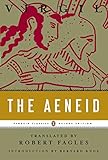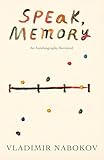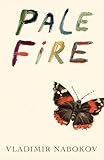
How many seminal works of 20th-century literature were created by refugees? Just judging by the Nobel laureates who were exiles from their homeland — a list that includes Thomas Mann, Elias Canetti, Aleksandr Solzhenitsyn, Isaac Bashevis Singer, Czesław Miłosz, and Joseph Brodsky — one might assume that themes of exile and homelessness permeated the modernist literary canon.
But that wouldn’t be true. Many writers continue to inhabit their native soil in their imagination long after they have moved beyond its borders. Thomas Mann never wrote a novel about the plight of a German exile on the shores of Malibu. Alas, I wish he had. Solzhenitsyn continued to devote his energies to writing about Mother Russia even after spending 18 years in southern Vermont. The model for these writers is the great James Joyce, who left Dublin in 1904 only to obsess about it for the rest of his life. For every writer who grappled with the refugee experience in fiction, as did Singer, you will find a half dozen who skirted over it with indifference, even as they lived through the trauma of a displaced life.


 As strange as it sounds, if I were forced to identify the defining literary works on the subject, almost every one on my list would be an old epic or scripture: The Odyssey (oddly enough, Joyce’s own role model for Ulysses) with its account of the hero’s exile from Ithaca; The Aeneid, with its tale of refugees from Troy; Paradise Lost, which opens with Satan and his crew receiving an eviction notice from Heaven; and, of course, the Book of Genesis, which kicks into high gear when the protagonists are sent packing from the Garden of Eden.
As strange as it sounds, if I were forced to identify the defining literary works on the subject, almost every one on my list would be an old epic or scripture: The Odyssey (oddly enough, Joyce’s own role model for Ulysses) with its account of the hero’s exile from Ithaca; The Aeneid, with its tale of refugees from Troy; Paradise Lost, which opens with Satan and his crew receiving an eviction notice from Heaven; and, of course, the Book of Genesis, which kicks into high gear when the protagonists are sent packing from the Garden of Eden.
But these are not novels, and none of them deal with the modern experience of exile. For that I turn to Vladimir Nabokov and his novel Pnin. This Russian émigré would seem an unlikely candidate to focus on the plight of refugees. Nabokov left his homeland behind at the end of his teen years, was educated at the University of Cambridge, and was so successful at assimilation that he learned to write the Queen’s English better than the Queen — and her subjects too. If one is seeking a success story from the ranks of the displaced, Nabokov is the ideal candidate. Not only did he survive as a writer in his new language, but he became that greatest of rarities, an American literary lion who was also a bestseller.
Yet Pnin arrived at bookstores before Nabokov had tasted these successes. And even literary acclaim could never assuage the bitterness of displacement and family tragedy. Nabokov’s father was killed in 1922 by another Russian exile and his brother Sergei later died in a German concentration camp. Around the time of his father’s death, the young author’s engagement to Svetlana Siewert was broken off because of her parents’ concern that Nabokov could not earn enough to support their daughter. His subsequent marriage to Véra Evseyevna Slonim brought with it subsequent risks because of her Jewish antecedents. When Nabokov left for the in the U.S. aboard the SS Champlain on May 19, 1940, he had already spent two decades of nomadic existence as a man without a country. He was not coming to America to seek fame and fortune, but rather as a last desperate move to escape the Nazis, who would enter Paris in triumph a few days later.
These experiences set the tone, of bitterness mixed with nostalgia for a vanished world, that permeates the pages of Pnin. The main character, Timofey Pavlovich Pnin, is a comic figure on the campus of Waindell College. His old-fashioned continental ways and thick Russian accent are mimicked and ridiculed. His improvisations and mispronunciations turn familiar terms into extravagant variants — for example, his order of whisky and soda ends up sounding like “viscous and sawdust.” When asking for the receipt in a restaurant, the best he can come up with is a request for the “quittance.” His appearance, his gestures, and his general lack of awareness of American manners are fodder for campus gossip and mockery.
Pnin has much to offer the college community, but his Old World erudition is not valued at Waindell. The students have little interest in what he teaches, and the faculty treat him as an amusing distraction. Nabokov clearly turned to his own life story as the basis for this book, and I suspect that many of the jokes at Pnin’s expense are drawn from those the author experienced firsthand. His willingness to turn his quasi-autobiographic protagonist into a comic figure is extremely brave — readers can’t help wondering whether they are getting an invitation to laugh at Vladimir Nabokov himself.
But as the book progresses, the tone gradually shifts. During the first hundred pages, you might even assume that this is a comic novel. But as the tragedy of Pnin’s life unfolds, in flashbacks and reminiscences, the reader is shocked into a deeper awareness of the reality of the refugee’s life in exile. The more we understand Pnin, the better we grasp how the whole fabric of his existence has been torn apart by the whims of history. The novel ends with us watching a professor offer a caustic impersonation of Pnin that goes on and on and on. But, by this juncture, we are no longer laughing.
Pnin, like any refugee, is just one many. He is, as Nabokov reminds, a small part of “the active and significant nucleus of an exiled society which during the third of a century it flourished remained practically unknown to American intellectuals.” And why were these individuals so greatly misunderstood? Well, for the very same reasons that refugees are feared today: because of the danger they pose to society. For Americans of the Cold War years, “the notion of Russian emigration was made to mean by astute Communist propaganda a vague and perfectly fictitious mass of so-called Trotskyites (whatever these are), ruined reactionaries, reformed or disguised Cheka men, tided ladies, professional priests, restaurant keepers, and White Russian military groups, all of them of no cultural importance whatever.”

 For Nabokov, who usually makes his views known indirectly in his novels, such plain-spokenness is unusual. This is a raw novel from a polished author, but raw in the best sense of them all. Nabokov may have been a great success at mastering the nuances of English and navigating through the U.S. publishing industry, but he had deep scars from his forced nomadic life, and refused to hide them in the course of this deeply moving book. In many ways, this novel is a deeply personal as his memoir Speak, Memory.
For Nabokov, who usually makes his views known indirectly in his novels, such plain-spokenness is unusual. This is a raw novel from a polished author, but raw in the best sense of them all. Nabokov may have been a great success at mastering the nuances of English and navigating through the U.S. publishing industry, but he had deep scars from his forced nomadic life, and refused to hide them in the course of this deeply moving book. In many ways, this novel is a deeply personal as his memoir Speak, Memory.
Although Nabokov is far better known today for Lolita, Pnin was his breakout book, the work that brought him to the attention of the U.S. literary community. Even before he could secure an American publisher for Lolita, Pnin found a receptive audience and got rave reviews. His previous writing in English had garnered little notice, but now he was seen as a rising literary star. The first printing of Pnin sold out in just one week, and Newsweek proclaimed Vladimir Nabokov as “one of the subtlest, funniest and most moving writers in the United States today.”
 You could still read Pnin for the humor today, but I think that misses much of the point. Nabokov originally wanted to call this book My Poor Pnin, and I suspect that he found more to weep over than laugh about in his refugee’s story. Nabokov would occasionally return to themes of nomadism and exile in later works — in Pale Fire, or even Lolita, which is very much a novel of wandering and homelessness. But in their evocation of the lost life of the exile, they never match the power of this 60-year-old book.
You could still read Pnin for the humor today, but I think that misses much of the point. Nabokov originally wanted to call this book My Poor Pnin, and I suspect that he found more to weep over than laugh about in his refugee’s story. Nabokov would occasionally return to themes of nomadism and exile in later works — in Pale Fire, or even Lolita, which is very much a novel of wandering and homelessness. But in their evocation of the lost life of the exile, they never match the power of this 60-year-old book.
Nor did any other writer of that era. There are other outstanding 20th-century novels that address the plight of the immigrant. W.G. Sebald’s Austerlitz, Willa Cather’s My Ántonia and Amy Tan’s The Joy Luck Club make it on my shortlist of must-read books on the subject. And in the 21st century, the refugee novel has emerged as a important category of fiction in works by Viet Thanh Nguyen, Mohsin Hamid, and others. But Nabokov’s Pnin gets my nod as the great forerunner of these works, the 20th-century masterwork on displacement in a time of sociopolitical upheaval. In a tumultuous period that found millions forced out of their homeland, and even more dead because they stayed behind, Nabokov was the most acute at turning these cumulative tragedies into a deeply personal novel that rings true on every page. In the current day, when exiles find themselves even less welcome wherever their sad fate sends them, we do well to remember that earlier generation, and how much we owe them. Perhaps we should also consider how often we still misunderstand the refugee’s plight. This book is a very good place to start that process.








